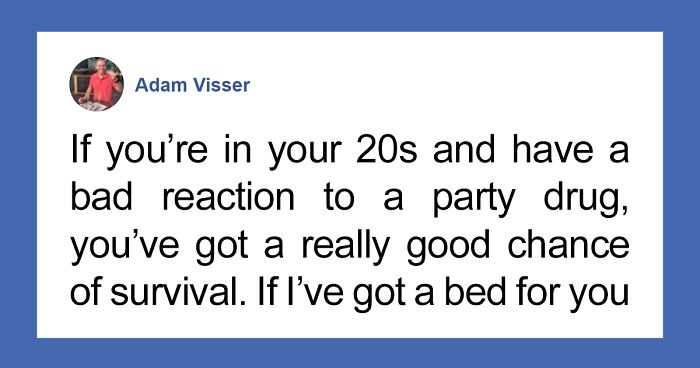
Intensive Care Specialist Warns People Why The Coronavirus Is No Joke, Even If You’re Young
The global coronavirus pandemic causes more than just bodily complications and death. It is also an issue of having enough medical resources to manage the pandemic. This is besides the resources and common sense needed to manage the chaos of hoarding happening in stores these days.
Adam Visser, an intensive care specialist from Toowoomba, a small city in Queensland, Australia, recently took to Facebook with a rather poetic and spot-on rant on why everyone should stay home and stay safe, despite the virus primarily being the greatest threat to those of older age and with chronic illnesses.
The coronavirus is more than just being sick—it’s also great stress on the healthcare system
Image credits: dreamingofariz (not the actual photo)
Visser explained that the coronavirus isn’t “just like the flu.” Yes, it is most dangerous to those with chronic illness and those over the age of 80, becoming progressively less dangerous with each decade below that threshold. However, these aren’t the only factors that make the pandemic a threat.
What is equally crucial is to not let people outside of this risk zone—the young and the healthy—get comfy and let their guard down. They may not have problems recovering from the coronavirus, but they may run into overcrowded and understaffed hospitals that are unable to treat them.
Visser took to Facebook and said it best:
An IC Specialist gave a spot-on explanation that everyone—not just those at risk—have to stay safe
Image credits: Adam Visser
Visser gave a clear-cut example from his own situation that spoke volumes. He currently houses 7 beds with life support machines, hoping to increase that to around 25. Increasing isn’t a matter of more equipment or more money—it’s about other resources such as staff and preparedness.
Imagine having those same 25 beds in a city where just a 5% infection rate would amount to 3,750 people barging into your hospital, requiring immediate care. This is what many unprepared nations, most notably Italy and Iran, have to face these days.
The idea is to flatten the curve—to stay safe so as to reduce the viral case count and the stress on hospitals
Image credits: CDC
This is why it is important to stay safe, stay home, and flatten the curve (shown above). The curve refers to minimizing the pandemic count by intervening as much as possible so as to not put stress on the system by overcrowding hospitals, clinics, and care centers. Yes, it will take longer, but it will also be much more manageable.
Obligatory PSA time: wash your hands frequently, maintain social distance, avoid touching the face, work from home if possible, and stay informed on your country’s recommendations and instructions. You can learn more by reading the World Health Organization’s basic protective measures against the coronavirus.
In a separate post, Visser expanded upon these recommendations: “Society can stop this going from bad to worst. Wash your hands. Don’t go to large events, or even medium events. Stay home if you’re sick, even just a little—you’re already infectious. Stay completely away from your elderly or chronically unwell friends and relatives unless truly necessary to help them out, and if it is then keep your distance and wash your hands.”
Many praised this clear-cut rundown of the situation and supported the idea
Here is how the rest of the internet reacted
Please don't be selfish - it isn't just about you. Think of anyone who may be vulnerable and follow the advice being given. Wash your hands properly and stay in unless you really have no other choice.
There are nowhere enough beds nor enough medical professionals for everyone during this pandemic. Wash your hands, don't hoard resources and, if you can, please stay home
for any epidemics, really, or a large scale event, this is the case.
Load More Replies...Please don't be selfish - it isn't just about you. Think of anyone who may be vulnerable and follow the advice being given. Wash your hands properly and stay in unless you really have no other choice.
There are nowhere enough beds nor enough medical professionals for everyone during this pandemic. Wash your hands, don't hoard resources and, if you can, please stay home
for any epidemics, really, or a large scale event, this is the case.
Load More Replies...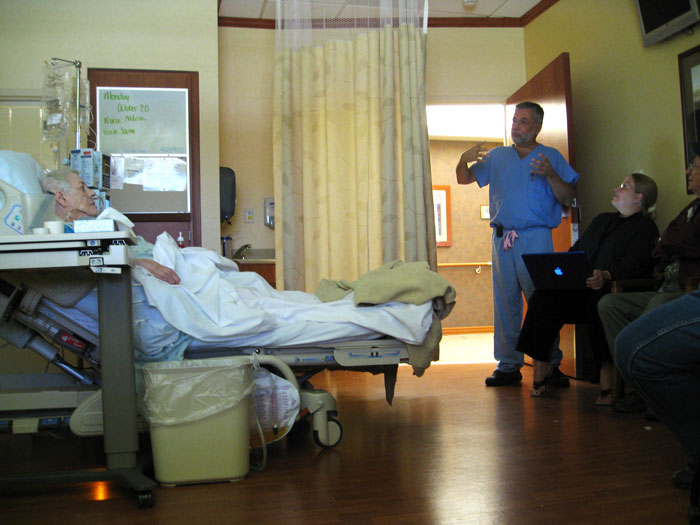
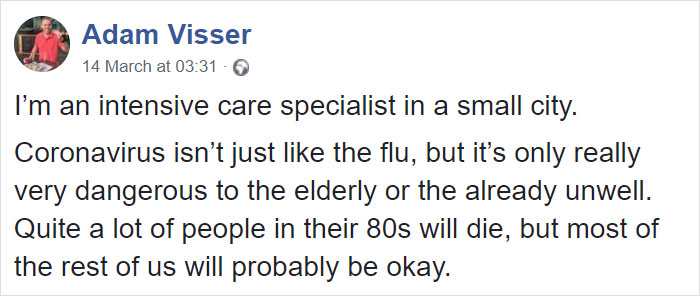
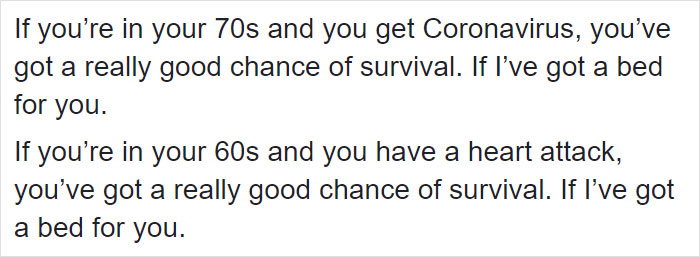
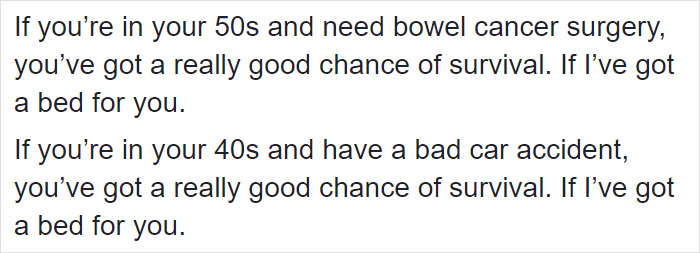
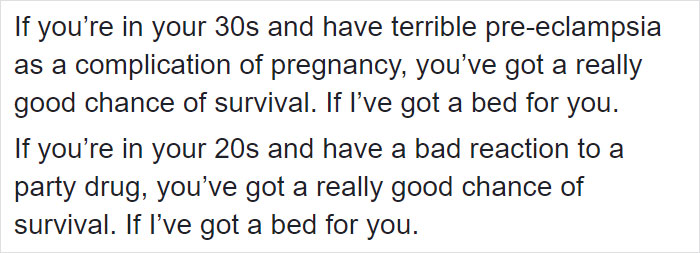
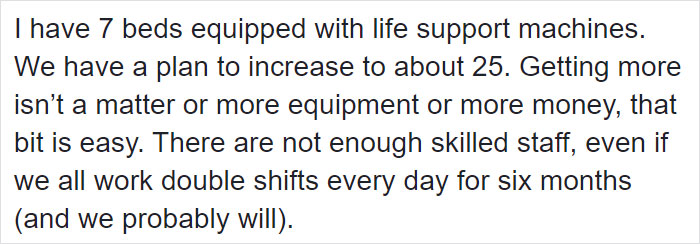
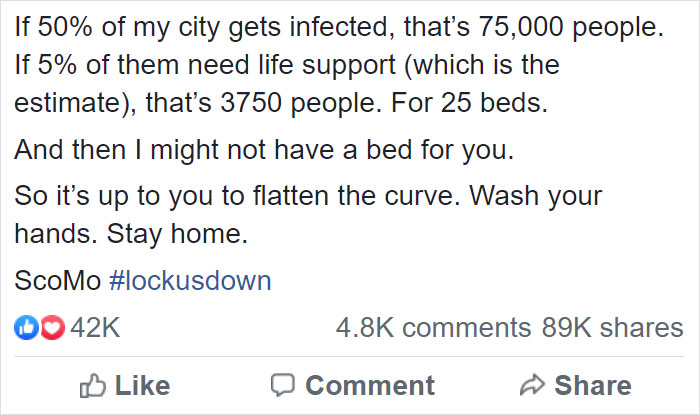
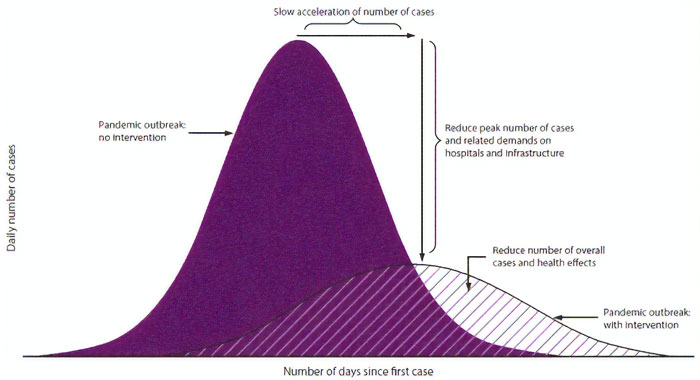



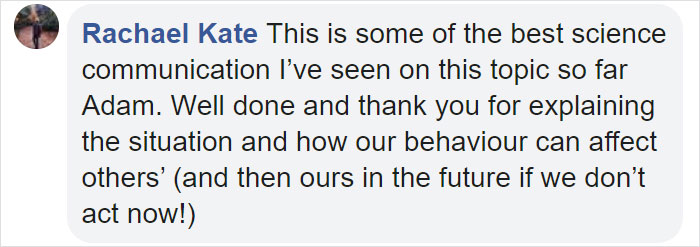
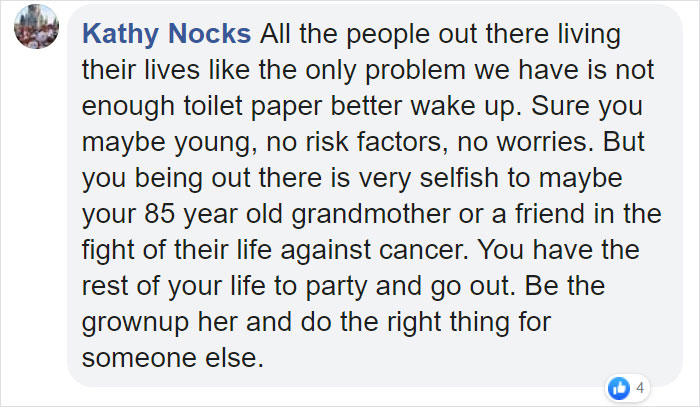
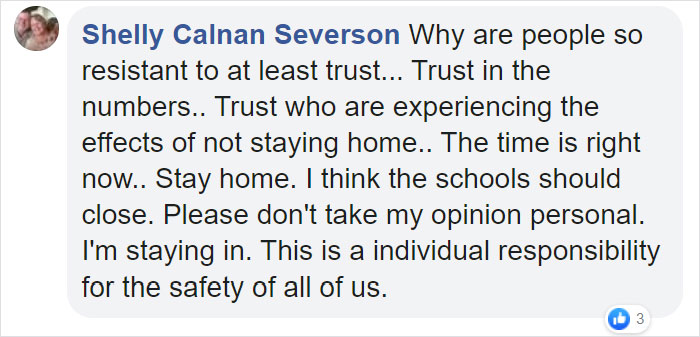










78
14